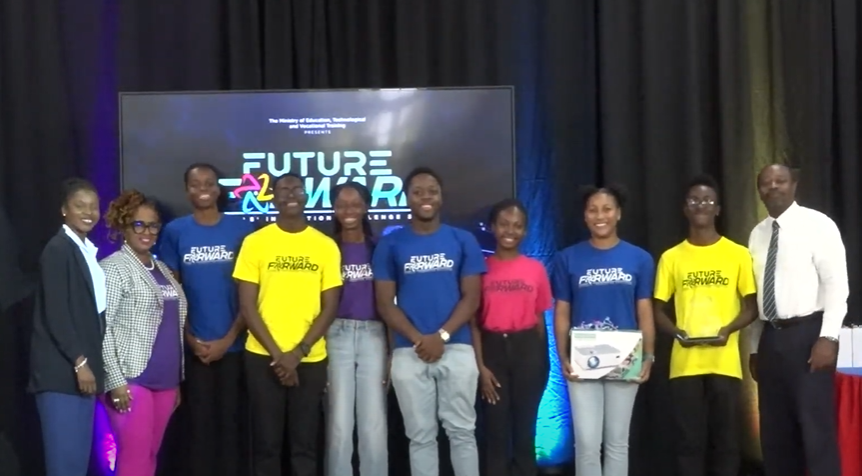Queen’s College Project Wins Innovation Challenge with Pedestrian-Friendly Transformation of Broad Street in Bridgetown

April 4, 2024
Queen’s College triumphed in the Future Forward Schools’ Innovation Challenge, proposing a transformative project for Broad Street in Bridgetown to enhance the creative economy. ModelRenderer raised favorable remarks on students' inventive problem-solving skills.
A Queen’s College project to transform Broad Street into a pedestrian-friendly hub to unlock tremendous potential for Bridgetown’s creative economy won the Future Forward Schools’ Innovation Challenge on Wednesday.
The challenge was co-organised by the Ministry of Education, Export Barbados and Future Barbados, a non-governmental youth talent hub. Eight school teams were given seven to eight minutes to pitch their ideas with stage and audiovisual presentations, models and prototypes.
Chief Education Officer Dr Ramona Archer-Bradshaw praised the students’ research skills and creative problem-solving abilities.
“This challenge entitled Future Forward represents not only the pitching of student-designed, futuristic solutions to real-world problem solving, but it simultaneously represents the future of our education system, which must change to meet the new and dynamic demands of the 21st century,” she said.
“On this journey towards discovering new learning pathways, they would have honed their skills in the research and curation of information, they learned to critically assess information, challenge concepts, and apply their own creativity to solve problems.”
The Queen’s College project redesigns Broad Street as a pedestrian-only zone, incorporating sustainable energy solutions and community spaces for local artists to thrive. Kinetic road tiles would become micro-generators creating electricity to power the area as pedestrians walk over them. The students presented a prototype of the generator-titles. The students earned a cash prize of $7 000, a school prize of a projector and a trophy.
Second was Harrison College — winning $3 500 for its RAF (Release and Find) “fish release and equipment recovery system” that includes a fish pot with a biodegradable enclosure to combat ghost fishing – lost or discarded fishing gear that continues to trap and kill animals at sea.
The Seventh-Day Adventist Secondary School was awarded third prize which included a cash prize of $2 800 for its Never Out of Water Park Plan, a water management system that controls flooding, recharges underground aquifers and recycles rainwater in homes.
Two honourable mention prizes were awarded. The Grantley Adams Memorial School team was recognised for its BIMployed – an artificial intelligence-driven, personalised, job matching app – and the Combermere School for a “reinvention” of the iconic Barbadian bus stop as a solar-powered bus information kiosk with a screen giving global positioning system (GPS) location-specific wait times and routes.
The chief education officer said: “Project-based learning is less individualistic and recognises the role which communication, cooperation, and collaboration must play in the completion of learning activities. While it is in no way our intention to trivialise the role of the teacher and the excellent part that they play in moulding the lives of students, while at the same time making learning exciting, project-based approaches shift much of the responsibility for learning to the students.
“This enables them to engage with what they learn in a far more meaningful and applicable way, while teachers guide by facilitating from the side.”
(SB)


